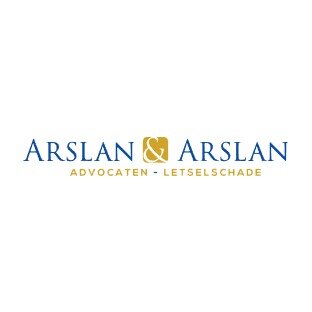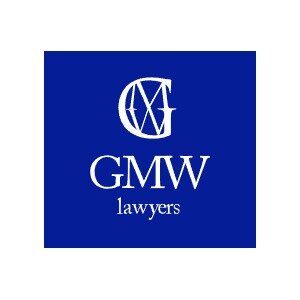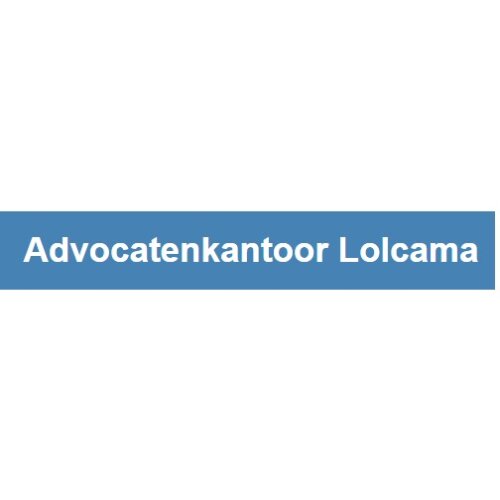Best Corporate & Commercial Lawyers in The Hague
Share your needs with us, get contacted by law firms.
Free. Takes 2 min.
List of the best lawyers in The Hague, Netherlands
Netherlands Corporate & Commercial Legal Articles
Browse our 1 legal article about Corporate & Commercial in Netherlands written by expert lawyers.
- Structuring a Dutch Holding Company in the Netherlands
- The Dutch Participation Exemption eliminates corporate income tax on dividends and capital gains derived from qualifying subsidiaries. The Netherlands offers one of the world's most extensive networks of Bilateral Investment Treaties (BITs), providing legal protection against foreign government interference. Maintaining "substance" is critical; holding companies must demonstrate a physical and... Read more →
About Corporate & Commercial Law in The Hague, Netherlands
Corporate & Commercial law in The Hague, Netherlands, covers the legal aspects of business operations, company structures, contracts, mergers and acquisitions, compliance, and dispute resolution. The Hague is not only the seat of the Dutch government but also an international legal hub, making it an important city for businesses both local and international. Law in this field ensures that companies operate within the bounds of Dutch and European Union legislation. It also protects the interests of both businesses and consumers, fostering a transparent and fair commercial environment.
Why You May Need a Lawyer
There are several situations in which you might require legal advice or representation in corporate and commercial matters in The Hague. Common scenarios include:
- Setting up or dissolving a company in the Netherlands
- Drafting, reviewing, or negotiating commercial contracts
- Dealing with mergers, acquisitions, or joint ventures
- Resolving shareholder disputes or partnership disagreements
- Ensuring compliance with Dutch and EU regulations
- Managing employment issues within a company
- Dealing with commercial litigation or debt collection
- Navigating intellectual property and trade secrets
- Protecting company assets during insolvency or restructuring
- Expanding business operations in or outside the Netherlands
Local Laws Overview
The legal framework governing corporate and commercial activity in The Hague is mainly based on Dutch law, with significant influences from European Union regulations. Key laws and areas include:
- Company Formation: Businesses typically operate as a BV (besloten vennootschap, private limited company) or NV (naamloze vennootschap, public limited company). The Dutch Civil Code (Burgerlijk Wetboek) contains the primary provisions on company law.
- Contract Law: Dutch contract law is flexible and largely based on the principle of freedom of contract, but certain conditions must be met regarding good faith and public policy.
- Corporate Governance: Businesses are subject to rules regarding management and supervision, shareholder rights, and financial reporting.
- Employment Law: Dutch law sets out worker protections, contracts, and termination procedures, which are particularly relevant during mergers or reorganizations.
- Intellectual Property: Dutch law and EU directives apply to patents, trademarks, and copyrights.
- Competition Law: Dutch and EU competition rules aim to prevent anti-competitive practices and promote market fairness.
- Dispute Resolution: Commercial disputes can often be settled through negotiation, mediation, Dutch courts, or international arbitration (for cross-border matters).
Frequently Asked Questions
What are the most common types of business entities in the Netherlands?
The most common types are the BV (private limited company) and NV (public limited company). Sole proprietorships and general partnerships are also seen, but BV and NV offer more legal protection and flexibility for growth.
How do I register a company in The Hague?
You need to execute a notarial deed of incorporation, register the company at the Dutch Chamber of Commerce (Kamer van Koophandel), and comply with tax and administrative requirements.
What documents are essential for company incorporation?
You will need the articles of association, proof of identification for founders, a notarial deed, and additional documentation depending on the business structure.
Are there any residency requirements for company directors?
Generally, there are no strict residency requirements for directors of Dutch companies, but having a resident director can help with practical matters and tax residency questions.
What are the key rules when drafting commercial contracts?
Dutch law permits freedom of contract, but contracts must follow principles of good faith, clarity, and not violate mandatory laws or public policy. Many businesses seek legal review before signing.
How are business disputes resolved in The Hague?
Disputes may be resolved through Dutch courts, mediation, or arbitration. The Hague is home to respected arbitration institutes for national and international commerce.
What are the most important compliance areas for Dutch businesses?
Companies must comply with financial reporting, anti-money laundering regulations, data protection (GDPR), employment laws, and competition rules.
Can foreign investors own 100 percent of a Dutch company?
Yes, foreign individuals and companies can generally own and control 100 percent of shares in a Dutch company, subject to sector-specific restrictions.
What are shareholder agreements and why are they important?
A shareholder agreement sets out the rights and obligations of shareholders, helping prevent and resolve disputes. While not legally required, it is highly recommended.
Is it necessary to hire a lawyer for business transactions in The Hague?
While not always legally required, hiring a lawyer is advised for complex transactions, contract negotiations, or when dealing with regulatory or cross-border issues.
Additional Resources
Several organizations and governmental bodies in The Hague and the Netherlands offer resources or support for those needing legal guidance in corporate and commercial matters:
- Dutch Chamber of Commerce (Kamer van Koophandel): Business registration and entrepreneurship resources
- Netherlands Enterprise Agency (RVO): Support for Dutch and foreign entrepreneurs
- The Hague Business Agency: Information for companies establishing or relocating to The Hague
- Legal Aid Board (Raad voor Rechtsbijstand): Guidance for eligible individuals and businesses on legal aid
- Dutch Bar Association (Nederlandse Orde van Advocaten): Lawyer directories and standards of practice
Next Steps
If you need legal assistance with a corporate or commercial issue in The Hague, consider the following steps:
- Identify your main legal issue and gather relevant documents
- Seek recommendations or consult directories for experienced lawyers in corporate and commercial law in The Hague
- Arrange an initial consultation to discuss your situation and options
- Clarify the lawyer’s fees, communication procedures, and anticipated timelines
- If your issue is urgent, mention your preferred deadlines early
- Stay organized and proactive in providing any requested documents or information to your lawyer
- Ask all questions you may have to ensure you understand your legal position and options
Sound advice from a qualified local lawyer can help you protect your business interests, ensure compliance, and resolve disputes efficiently in The Hague, Netherlands.
Lawzana helps you find the best lawyers and law firms in The Hague through a curated and pre-screened list of qualified legal professionals. Our platform offers rankings and detailed profiles of attorneys and law firms, allowing you to compare based on practice areas, including Corporate & Commercial, experience, and client feedback.
Each profile includes a description of the firm's areas of practice, client reviews, team members and partners, year of establishment, spoken languages, office locations, contact information, social media presence, and any published articles or resources. Most firms on our platform speak English and are experienced in both local and international legal matters.
Get a quote from top-rated law firms in The Hague, Netherlands — quickly, securely, and without unnecessary hassle.
Disclaimer:
The information provided on this page is for general informational purposes only and does not constitute legal advice. While we strive to ensure the accuracy and relevance of the content, legal information may change over time, and interpretations of the law can vary. You should always consult with a qualified legal professional for advice specific to your situation.
We disclaim all liability for actions taken or not taken based on the content of this page. If you believe any information is incorrect or outdated, please contact us, and we will review and update it where appropriate.
Browse corporate & commercial law firms by service in The Hague, Netherlands
The Hague, Netherlands Attorneys in related practice areas.












